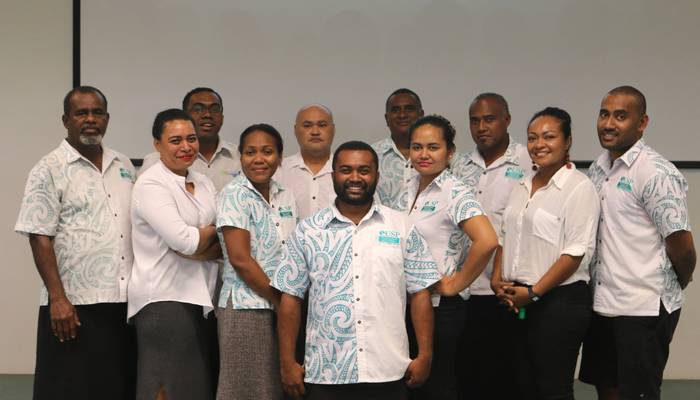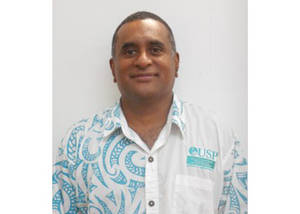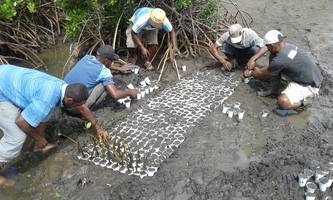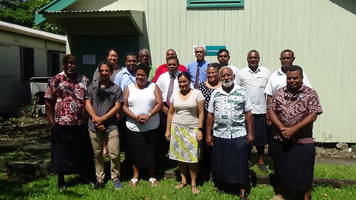- The Institute of Applied Sciences
- Our Team
- 11th Oceania Foods 2023
- Handbook & Calendar
- Laboratory Services
- South Pacific Regional Herbarium and Biodiversity Centre
- Quality Marketing and Communication Unit
- Pacific Natural Products Research Centre
- Environment Unit
- IAS Projects
- Research
- Resources
- Services
- Contact Us
- News
- The Institute of Applied Sciences
- Our Team
- 11th Oceania Foods 2023
- Handbook & Calendar
- Laboratory Services
- South Pacific Regional Herbarium and Biodiversity Centre
- Quality Marketing and Communication Unit
- Pacific Natural Products Research Centre
- Environment Unit
- IAS Projects
- Research
- Resources
- Services
- Contact Us
- News
Environment unit
The Institute of Applied Science (IAS) Environment Unit conducts environmental impacts assessments and can monitor land and water biodiversity and water quality. It also works with communities to assist them in the development and implementation of resource management plans.

Major projects of the unit are the Integrated Coastal Management (ICM) projects, Integrated Locally Managed Marine Area (LMMA) Project, which focuses on community-based management of marine resources in a number of sites around Fiji. The unit was also the Pacific focal point for the LMMA Network, a learning portfolio of community-based marine conservation projects in Asia and the Pacific which won the Equator Initiative Award in 2002. LMMA is now an independent entity and for more information please go to lmmanetwork.org
The unit also has expertise in the areas of water and sanitation, land use planning, ecological, socio-economic, capacity building and training.
 Contact
Contact
Name: Dr.Isoa Korovulavula
Title: Manager
Unit: Environment Unit
Email: isoa.korovulavula@usp.ac.fj
Contact: +679 323 2976
Current Projects
Fiji Ridge to Reef (R2R) Project
The Fiji Ridge to Reef (R2R) project is a multi-partnership agreement for a 1.5 Million USD project to improve climate resilience and to sustain livelihoods in Fiji. Funded by the Global Environment Facility (GEF), the 3-year project is facilitated but the UNDP and the Ministry of Waterways and Environment.
The Fiji R2R Project intends to preserve biodiversity, ecosystem services, sequester carbon, improve climate resilience and sustain livelihoods through a ridge-to-reef management of six priority water catchments on the two main islands of Fiji. The catchments include Waidina-Rewa, Tuva and Ba on Viti Levu and Labasa, Vinivia and Tunuloa on Vanua Levu.
In collaboration with development partners, namely the Government of Fiji and Non-Governmental Organisations, the project will address key environmental issues in an integrated manner. It will bolster Fiji’s national system of marine protected areas through an enhanced and a sustainable system of LMMA including greater protection of threatened marine species. It also aims to reduce the negative impacts of land-based activities on the Marine Protected Areas through the development and implementation of integrated catchment management plans.This includes mangrove protection and adoption of appropriate sustainable land use practices. It also covers riparian restoration in adjoining upstream watersheds as well as terrestrial protected areas, restored and rehabilitated forests.



